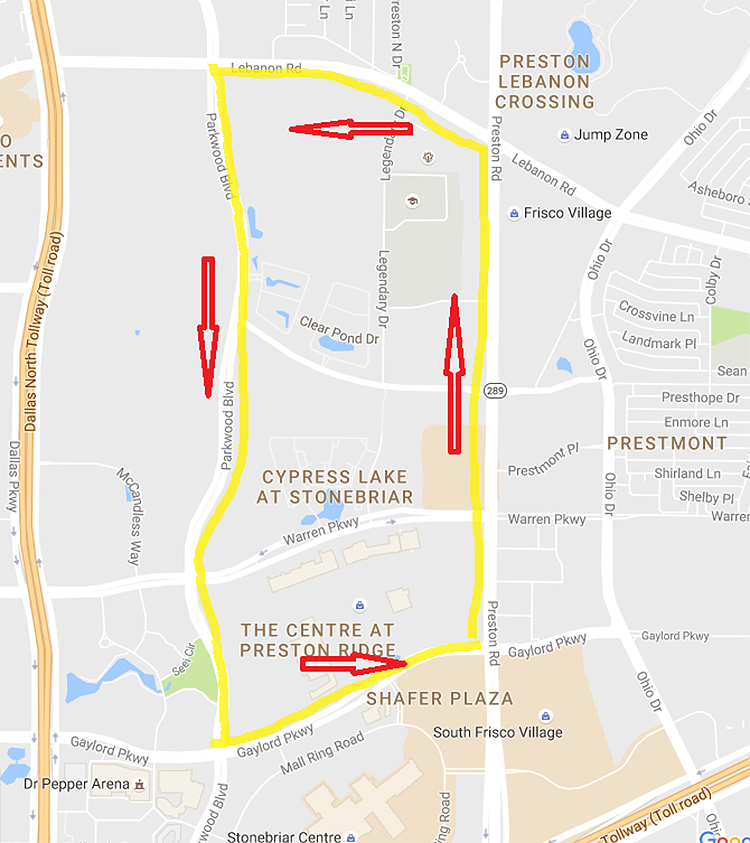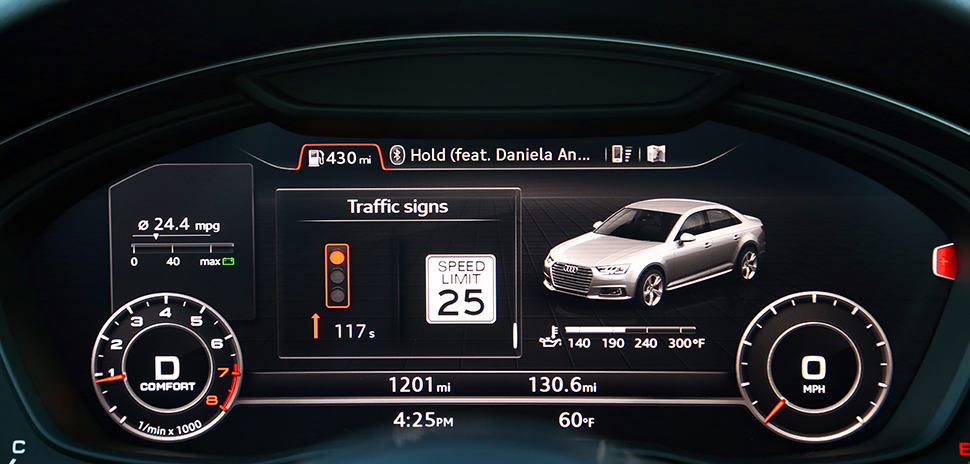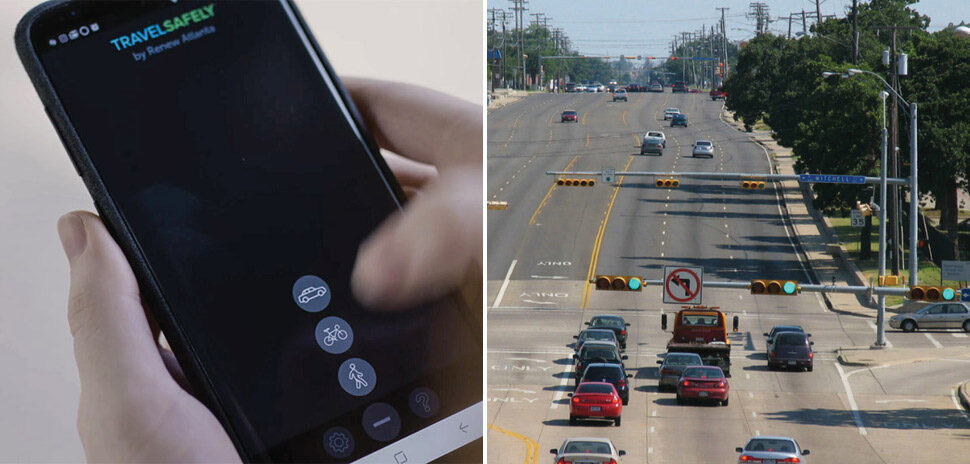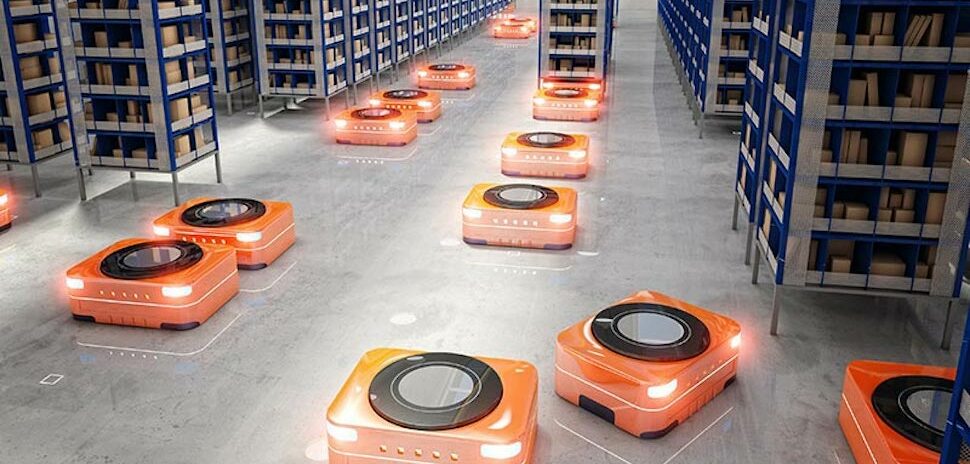![]() The Smart Cars have landed. On Nov. 9, Frisco became the first U.S. city outside the San Francisco Bay area to test Smart Car technology on public streets — a four-mile loop on Frisco’s south side, north of Stonebriar Centre.
The Smart Cars have landed. On Nov. 9, Frisco became the first U.S. city outside the San Francisco Bay area to test Smart Car technology on public streets — a four-mile loop on Frisco’s south side, north of Stonebriar Centre.
On that day, 2017-model Audis equipped with the automaker’s Audi connect feature pulled up to a traffic light, automatically communicated data with Frisco’s traffic control system, which then cast that information to the cloud; one of the parties that received the info, Audi, further processed that information and sent it back to its cars in Frisco.
The result shown on those Audis’ dashboard displays (besides the typical miles-per-hour, mileage and odometer information): a traffic light symbol, along with a digital counter that tells drivers how long they have to wait for the signal to turn green.
That, in technical terms, is called “Vehicle-to-Infrastructure” (even more technically, V2I) communication, and Audi soon will make that function active in other U.S. cities as well.
“I think this project is an example of our progressive use of technologies to help manage our traffic control system.”
Brian Moen
The Nov. 9 Smart Car demo occurred as part of the Texas Chapter of Intelligent Transportation Society’s annual meeting in Richardson.
It also was a result of a North Central Texas Council of Governments (NCTCOG) initiative to encourage cities and other governments in the Dallas Region to share their nonconfidential traffic data with companies working in Smart Car (and Stop Light, etc.) technologies.
The city of Frisco already had formed a partnership with its traffic-control device contractor, Trafficware. The Sugar Land-based company has been working with Audi, auto-industry data provider Traffic Technology Services (TTS) and other local governments (including Frisco) to establish similar systems in communities across the United States.
“I think this project is an example of our progressive use of technologies to help manage our traffic control system,” said Brian Moen, assistant director of engineering services/transportation, for the city of Frisco. “We see the use of this technology as Frisco’s opportunity to help further the development of connected vehicles.”
Moen added that, aside from delivering how-long-until-green information to drivers, systems such as Frisco’s will help conserve power, reduce traffic congestion, and make roads safer, when implemented on a larger scale. Researchers say that technology could reduce nonalcohol-related accidents by up to 80 percent.
“By approving this agreement, Frisco will be part of helping this technology grow by being one of the first public agencies nationally to share traffic signal data.”
Brian Moen
Though the concept of vehicle-to-vehicle (V2V) and vehicle-to-infrastructure (V2I) technology has been in development for decades, the trial run in Frisco is significant because it involves hardware and software that is being installed in production cars and in traffic signal controllers that are being deployed on U.S. streets. Industry experts say other trials involved cities in the San Francisco Bay area. About a month after the Nov. 9 launch in Frisco, Audi announced the same technology would go live at hundreds of intersections in Las Vegas.
“By approving this agreement, Frisco will be part of helping this technology grow by being one of the first public agencies nationally to share traffic signal data,” Moen wrote in a memo to members of Frisco City Council, prior to Nov. 9. They approved the measure on Oct. 11.
Along those lines, NCTCOG is asking other governments in North Texas to share their traffic data, to encourage companies to further develop technologies that allow cars and infrastructure (traffic-signal controllers, sensors mounted on traffic signs, etc.) to communicate with each other, so that drivers can avoid road-related problems.
NCTCOG Program Manager for Automated Vehicles Thomas Bamonte said his organization wants to position North Texas as a primary data provider and host for companies that are working toward perfecting vehicle-to-vehicle and vehicle-to-infrastucture technology.
“NCTCOG believes that detailed, accurate and up-to-date information about roadway and traffic conditions is essential to support the safe and efficient operation of increasingly automated vehicles,” Bamonte said.

The route taken by the connected cars in Frisco. [Map Courtesy Trafficware]
Delivering what’s new and next in Dallas-Fort Worth innovation, every day. Get the Dallas Innovates e-newsletter.



![TI's new radar sensor gives automotive engineers more tools that can fuel vehicle innovation. [Source image: Texas Instruments]](https://s24806.pcdn.co/wp-content/uploads/2022/01/TI-radar-sensor_courtesy-970x464.jpg)



























